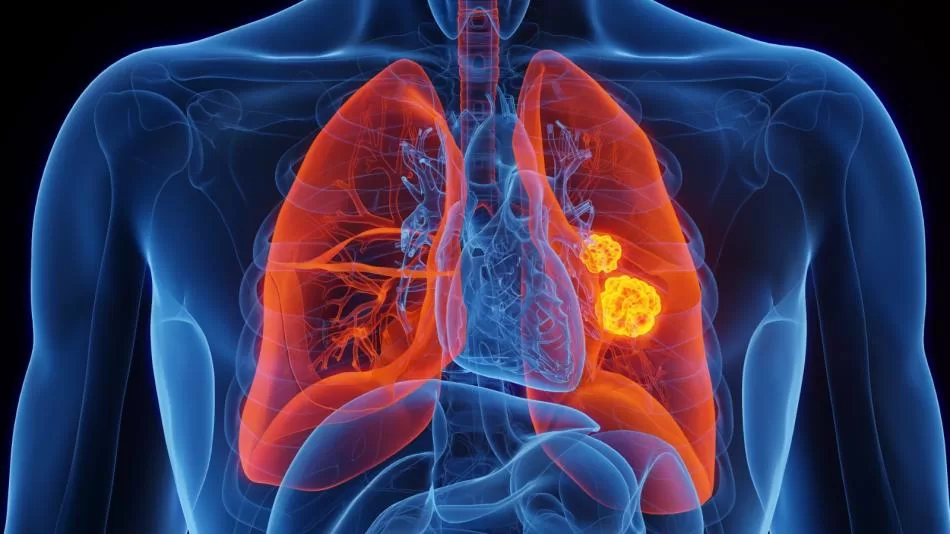(Keep reading: Lung cancer: the Coffee Region would be the region with the highest prevalence in Colombia)
“In addition to advances in surgery and radiotherapy, the past two decades have seen great advances in systemic therapy, with the introduction of immunotherapy, targeted therapy and antibody-based treatments alongside traditional chemotherapy options,” he explained.
Focusing on the importance of regular check-ups, the oncologist states that lung cancer mortality rates could be reduced by up to 20% if people between the ages of 50 and 80 with a history of smoking 20 pack-years, and who currently smoke or have quit smoking in the last 15 years, underwent annual check-ups by low-dose Chest Axial Tomography (CT).
(You may be interested: Giants in the health industry come together to expand access to cancer tests)
However, the lung cancer doctor points out that non-smokers and younger people can also get lung cancer and that it is usually associated with specific genetic mutations, as opposed to cumulative DNA damage caused by smoking.
At centers like the Cleveland Clinic, a multidisciplinary team cares for lung cancer cases, with medical and radiation oncologists, thoracic surgeons, pulmonologists, radiologists, pathologists, and other lung cancer experts working together to create a treatment plan that deliver the best possible patient outcomes.
In stage 4, as the cancer has spread to other organs, surgery or radiotherapy would have no role, and treatment would be in the form of systemic therapy.
“Third, we will take into account the current health and circumstances of the patients, for example, whether they are suitable for surgery.” If the disease is caught early, at stage 1, and the patient is otherwise healthy, surgical removal of the tumors is the preferred option, says the lung cancer oncologist, as it offers the best chance of removing all cancer cells so that the cancer does not come back,” says the expert.
According to Dr. Hassan, surgery is curative in about 80% of stage 1 patients. If the patient is unable or unwilling to have surgery, they will most likely be given a form of targeted radiation, such as stereotactic body radiation therapy.
According to the expert, for stage 2 and 3 lung cancer, surgery or radiation would be followed by systemic therapy, which has undergone great advances in the last two decades.
In stage 4, as the cancer has spread to other organs, surgery or radiotherapy would have no role, and treatment would be in the form of systemic therapy.
(Also read: Common Lung Cancer Symptoms You Shouldn’t Ignore)
As for advances in systemic therapy, Dr. Hassan says that chemotherapy was the treatment of choice for many years, but three advances have greatly increased treatment options.
The first came in the early 2000s, when experts discovered that many lung cancers are due to specific gene mutations. As these mutations were identified, oral drugs targeting each of them were developed, and more drugs continue to be developed as more mutations are identified.
The second breakthrough came with the development of immunotherapy drugs in the mid-2010s. These drugs are well tolerated and have fewer risks and side effects than chemotherapy, for example, since they harness the body’s own immune system to fight cancer.
“In very simple terms, cancer cells normally ‘hide’ from the immune system, but immunotherapeutic drugs work to make them identifiable and accessible, so that they can be eradicated,” says the specialist.
Antibody-drug conjugates (ADCs) represent the third advance. In them, antibodies with chemotherapeutic drugs attached to them circulate in the blood and bind to specific receptors on cancer cells. Once attached, they release the chemotherapy into the cell to destroy it. The advantage of this method is that it targets only the cancer cells instead of exposing the entire organism to a
chemotherapy treatment.
The specialist points out that although these new treatments, together with regular examinations, can help to significantly reduce cancer death rates, prevention remains key.
“It is well documented that many cases of lung cancer are due to years of tobacco use. Encouraging people to quit or never start any smoking habit, including cigarettes, chewing tobacco, hookah and vaping, would substantially reduce lung cancer incidence and mortality.”
In case you have more questions or have suggestions on topics you would like to read about, please write to [email protected].
D. Vanessa Ortiz


